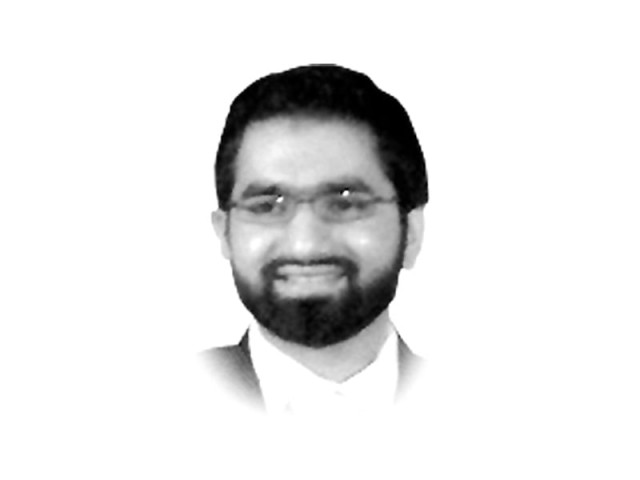Outsourcing our confidence
We live in a society where conformity is rewarded and straying from the norm is punished with judgement

The writer is the recipient of the James A Wechsler Award for International Reporting and a graduate of Columbia University’s Graduate School of Journalism. He tweets @Mbilallakhani
Unfortunately, this insight holds true in Pakistan not just for disabled people but also for people who might be fully physically able but have developed certain self-imposed mental limitations or disabilities, which creep into them at difficult moments in their lives (for example, the loss of a parent at a young age, a public divorce or a personal financial meltdown). We live in a society where conformity is rewarded and straying from the norm is punished with judgment. When lives veer off course, people lose their ability to imagine that they too deserve a normal life or happiness. The dramatic loss of confidence comes from the inability to find other folks with similar life experiences or disabilities living happy, fulfilling lives in Pakistan. This is reinforced by a society which argues that the path to a happy, fulfilling life is already set in stone and can’t be personalised. How do we challenge this status quo, which destroys lives even before they begin to blossom?
There’s a two-pronged solution to this dilemma. First, as individuals who struggle with a physical disability or emotional/mental challenges, we must separate the core issues from the beast that we allow to overpower our minds. When something bad happens to us, we must isolate and contain the damage to a limited area much like firefighters would try to contain a fire before extinguishing it. If we begin to play victim and argue all bad things only happen to us, we will sink into a self-fulfilling prophecy. Our confidence will shatter as we compare our lives to ‘normal’ people who may not have the same problems as us. This need to benchmark our lives to others is dangerous as it effectively outsources our confidence to the happiness of others rather than ourselves.
Moving beyond individuals, society as a whole must also recalibrate how much and how we judge each other. First, the suffocating pressure of living life in the pursuit of growing bank accounts and getting married fast/having children faster so you can get them married off fast, needs a pause and re-assessment on whether these are genuine universal goals that everyone aspires to. There are enough people with different points of views in our society, who may want different things or may want to arrive at these goals using different paths, for us to give them some space. Creating this judgment-free space will allow those with physical disabilities or emotional/mental challenges to understand that they don’t have to feel inadequate if they don’t measure up to some societal construct of normal or successful. In fact, this space will give them the confidence to design and pursue their own definition of happiness and a purposeful life.
The physically disabled in developed countries try to live normal lives as best as they can because they attempt to pursue a personalised definition of happiness regardless of their personal circumstances. We have a lot to learn from them as disabled and abled Pakistanis. We need to start a movement in Pakistan to take back control of our happiness from the inside out. How do we create happiness from the inside out? We need to ask ourselves what makes us happy rather than asking what ‘should’ make us happy. This task is significantly more challenging in a judgmental society like Pakistan but this is a difficult journey we must embark on to discover ourselves. Once we understand our drivers of happiness, we need to have the confidence to build a life that reflects our core values. We need to stop thinking this is selfish. After all, we can only bring joy and meaning in the lives of people we care about when we know how to bring joy and meaning in our own lives.
Published in The Express Tribune, May 5th, 2016.
Like Opinion & Editorial on Facebook, follow @ETOpEd on Twitter to receive all updates on all our daily pieces.

















COMMENTS
Comments are moderated and generally will be posted if they are on-topic and not abusive.
For more information, please see our Comments FAQ